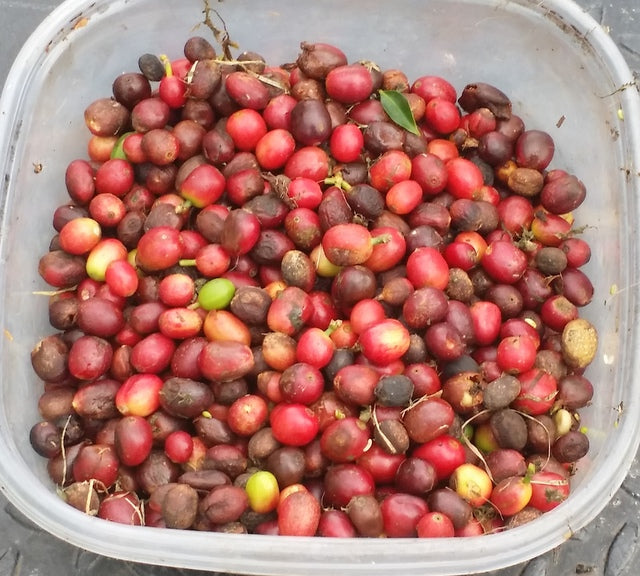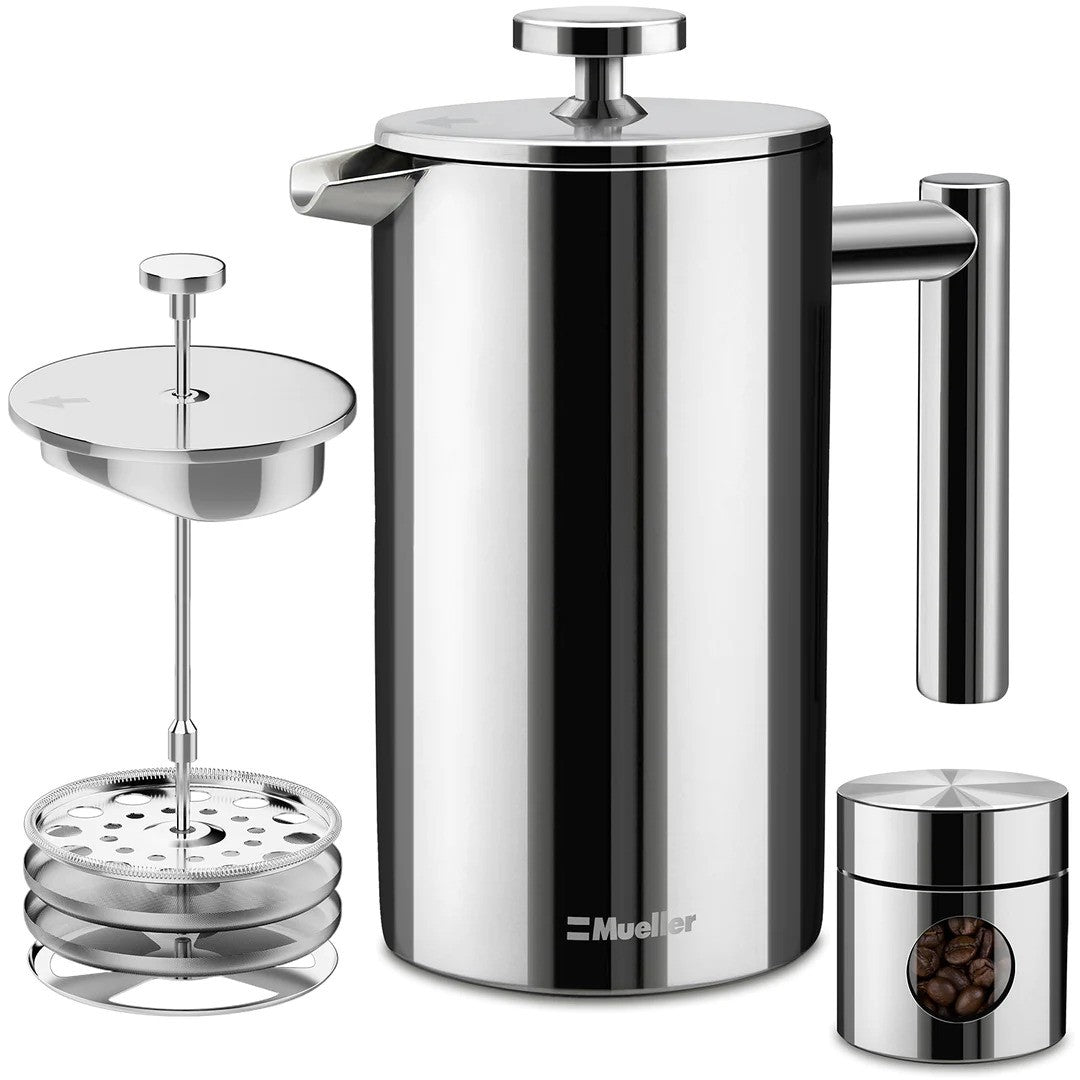"Roasters Getting Rich Selling Buggy Coffee" by Karen Paterson

Some Kona Coffee mills are buying buggy beans from farmers at roadside platforms, dark roasting the coffee, grinding it and selling it in local big box stores. Customers who buy the coffee are looking for Kona coffee at the cheapest price. The customers are getting exactly what they pay for – cheap, bad tasting coffee. Meanwhile, the bug coffee mills are getting rich by destroying the reputation of Kona coffee.
Bug mills are not only cheating consumers but also violating the law. Hawaii law requires that using the name Kona on roasted coffee labels is prohibited if the beans do not meet Hawaii green coffee grading standards for Kona coffee. Bug coffee cannot meet Hawaii green coffee grading standards for Kona coffee. Unfortunately, the Hawaii Department of Agriculture isn’t willing to enforce the law.
Coffee farmers are fighting among other things the twig borer beetle and the coffee berry borer beetle. Some farmers are spraying a fungus that costs over two hundred dollars a gallon. Others are spraying chemical pesticides. A few have underground home brew sprays that they claim are successful. None of the sprays are completely successful. A farmer who can keep his crop loss to five percent is doing an amazing job.
Last year, Kona Coffee farmers who sold their coffee cherry (whole fruit) to the mills were wasting their time and money trying to prevent bug damage to their crop. All of the mills were paying $2.00 a pound for coffee cherry at the height of the season. The bug mills were paying top price for any coffee cherry, dark roasting it (bugs and all), grinding it and selling it as 100% Kona Coffee. The more ethical mills were discounting their price by the amount of bugs in the coffee. The result was that a farmer who sprayed his coffee every month and sold quality coffee to an ethical mill got $2.00 a pound less a discount. However, his neighbor farmer who didn’t spray got the whole $2.00 a pound by selling at a roadside stand to a bug mill.
Poor quality Kona coffee hurts every coffee farmer. Consumers tend to judge coffee by region rather than by brand. A tourist buying cheap Kona coffee in a big box store is never going to believe that Kona coffee is a gourmet item. Bug coffee tastes like it sounds – bad.
The problem is that the economics are upside down. Mills should be paying more for quality cherry than for buggy cherry. If a bug mill can buy bad coffee cherry for $2.00 a pound and make a profit then an ethical mill should be able to pay more for quality cherry and make a profit.
One hundred pounds of bug coffee results in about 16 pounds of dark roasted, ground coffee. Bug coffee retails in the big box stores for $19 to $25 a pound. Bug mills gross from $304 to $400 for every 100 pound bag of bug coffee cherry. From that amount they have to subtract their expenses for things such as, cherry purchase, processing, roasting, grinding, bagging and the big box store markup.

One hundred pounds of quality coffee cherry results in about 14 pounds of roasted coffee. Quality Kona coffee sells locally for about $30 to $35 a pound. Ethical mills selling roasted coffee can gross from $420 to $490 for every 100 pound bag of high quality cherry. From that amount the ethical mills also have to subtract their expenses. If ethical mills increased their cherry purchase price by fifty cents a pound ($50/100 pound bag) over the bug mills price they could still undercut the bug mills and sell a quality roasted product at a profit.
One problem for ethical mills is that they sell most of their coffee as green coffee to roasters. Bug mills cannot sell their buggy green coffee because their coffee can’t meet State of Hawaii green coffee certification standards. Last year a pound of green Kona coffee sold for between $12 and $20 a pound. This year increasing the purchase price of quality coffee cherry by fifty cents a pound would increase the price of quality green coffee to between $14.50 and $22.50 a pound.
If Kona coffee was competing against coffee from other countries based on price, roasters wouldn’t pay for an increase in green prices. However, very few coffees in the world cost as much as Kona Coffee. A typical out of state roaster will buy green Kona Coffee, roast it, bag it and sell it for $40 to $50 a pound. Starbucks is currently selling roasted Kona coffee for $55 per pound. On the same shelf as the Kona coffee, a roaster will feature a top grade Central American coffee for $12.95 a pound. Kona coffee has long ago passed the point of competing on price. We either compete on quality or we go out of business.
The ethical mills have an opportunity to put the bug mills out of business and at the same time improve the quality of green Kona coffee. It isn’t going to happen by chance, by divine intervention or help from the Hawaii legislature. It is only going to happen using simple supply and demand economics. If ethical mills increase their prices to farmers above the prices offered by the bug mills and, in return, demand high quality coffee from the farmers, the bug mills will be forced out and the reputation of Kona coffee will improve.
Karen Jue Paterson is the owner of Hula Daddy Kona Coffee, a 33 acre coffee farm in Kona, Hawaii. Hula Daddy Kona Coffee does not buy or sell coffee cherry to or from anyone. She is a member of the Hawaii Coffee Association, the Kona Coffee Council, the Kona Coffee Farmers Association, the Holualoa Village Association and the Specialty Coffee Association of America. She is also the author of a number of articles on Kona Coffee including: Kona Coffee Farmers at a Crossroad https://www.huladaddy.com/?p=696 ;How Typica is Your Kona Coffee? https://www.huladaddy.com/?p=710 ; Are Roasters Eroding the Kona Coffee Brand?https://www.huladaddy.com/?p=952; Coffee Cupping Competitions – Real or Random Chance? https://www.huladaddy.com/?p=1670 ; Seven Easy Steps to Become a Gourmet Coffee Taster https://www.huladaddy.com/?p=1785 ; How to Brew Coffee Using a Pour Over Filter https://www.huladaddy.com/?p=1754; Before You Buy an Automatic Single Serve Coffee Brewer https://www.huladaddy.com/?p=1899; Siphon Coffee Brewers Suck! https://www.huladaddy.com/?p=2026 You can email her at huladaddycoffee@gmail.com #huladaddy #konacoffee

